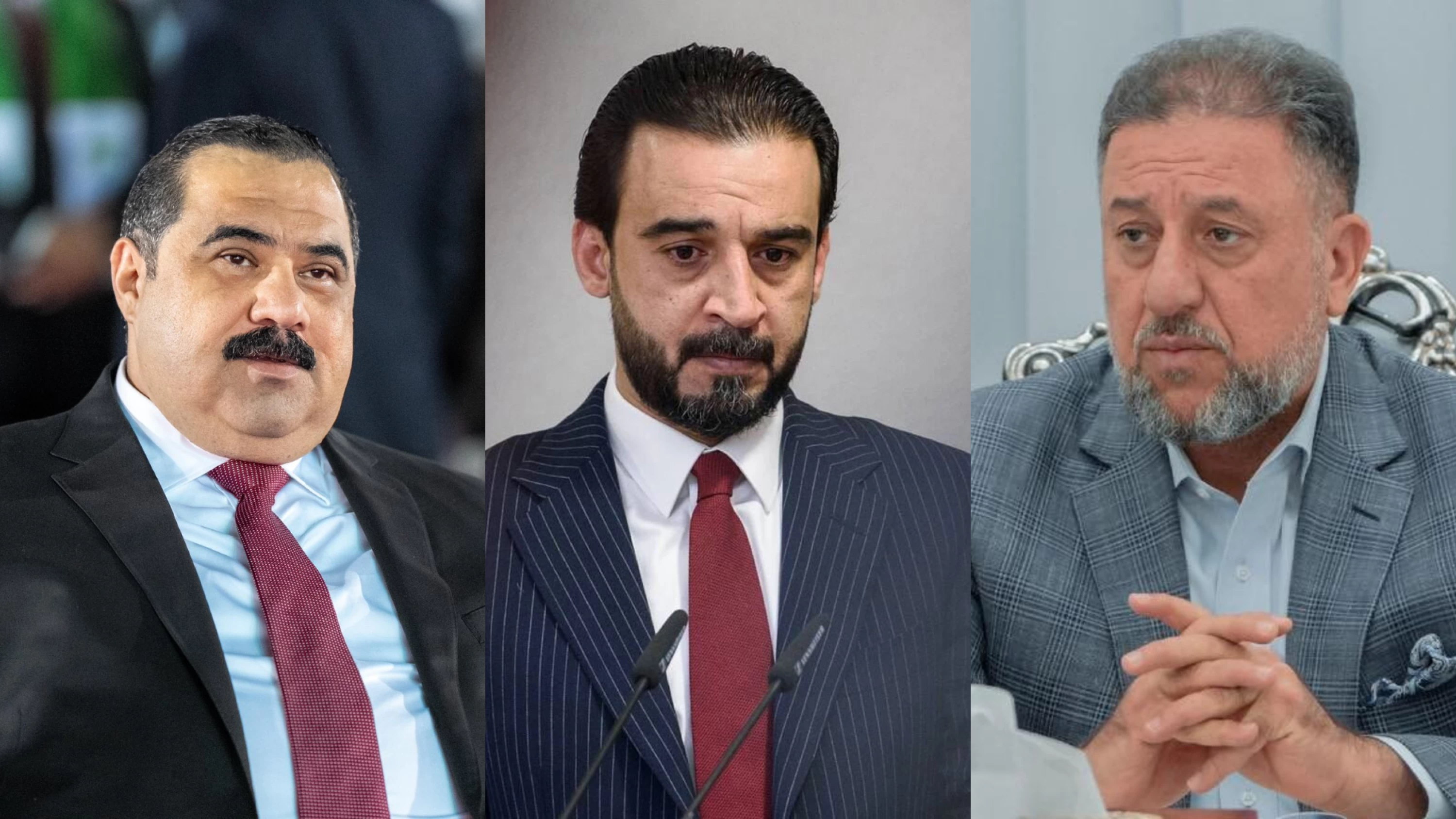ERBIL, Kurdistan Region of Iraq - Following the announcement of Iraq’s election results for the sixth parliamentary term and a total voter turnout of 56 percent, attention has turned to the Sunni political map, its winners, losers, and shifting dynamics.
According to the results from the Independent High Electoral Commission (IHEC), Sunni representation in the new parliament is set to drop from 80 seats in the previous term to just 73, despite the absence of Muqtada al-Sadr’s National Shiite Movement], which many analysts expected would give Sunni candidates more space to win additional seats, particularly in Baghdad.
The Taqadum Party, led by Mohammed al-Halbousi, will reportedly win 33 seats, remaining the leading Sunni force. The Azm Alliance, headed by Muthanna al-Samarrai, secured 17 seats, including two from the Tafawuq Alliance, which ran under Azm’s umbrella.
The biggest loss was recorded by the Sovereignty)Alliance, led by Khamis al-Khanjar, which obtained only 11 seats, including its coalitions in Nineveh and Kirkuk.
The Hasm Alliance, led by Defense Minister Thabet al-Abbasi, along with Nineveh for Its People, won nine seats, while the Jamaheer Party, led by Ahmad al-Jabouri (Abu Mazen), gained three seats.
Political researcher Ahmed al-Hadithi described the Sunni component as “a loser in these elections,” pointing to the overall drop in its seat count and its failure to take advantage of the Sadrist boycott.
“Because of personal interests among Sunni parties and the dominance of ego, votes were scattered in Baghdad, Diyala, and Nineveh,” Hadithi told The New Region. “That fragmentation prevented Sunnis from using the opportunity effectively.”
He noted that Sunnis won only 22 seats in Baghdad, compared to 26 in the recent provincial council elections. “It should have been at least 30 seats,” he added.
In Baghdad, Taqadum came in second overall with 10 seats, followed by Azm with five, Sovereignty with four, and Hasm with three.
Sunni voters reject prominent figures
Political researcher Ahmed al-Tamimi said the results for Sunni blocs were “surprising”, noting the loss of several well-known figures who were expected to perform strongly.
Among the main losers, he said, were Parliament Speaker Mahmoud al-Mashhadani, former Speaker Salim al-Jabouri, former MP Laith al-Dulaimi, MP Yahya al-Muhammedi, Culture Minister Ahmad al-Fakkak, former Minister Falah al-Zaidan, Sanan and Abdullah al-Nujaifi (sons of the prominent Nujaifi family), tribal leader Abdullah al-Yawar, and MP Shaalan al-Karim.
“These figures were expected to win because of their political background and tribal influence,” Tamimi told The New Region, “but it’s clear that the Sunni voter’s preference has changed.”
He noted that while Taqadum remained the largest Sunni bloc, it lost ground compared to the last election, dropping from 44 seats to a projected 35, including allied lists. “It also failed to achieve a simple majority within the Sunni component,” he added.
Tamimi said the party also faced a major setback in Anbar, its political stronghold, where it expected to win 14 out of 15 seats but ended up with 11. “This will likely increase the number of its opponents and reduce its influence in its base,” he said.
He added that another surprise was the Sovereignty Alliance’s poor result, which won only 11 seats, despite expectations it would secure at least 18 due to alliances with blocs such as Tashree‘ (Legislation).
Former MP and Sovereignty Alliance senior leader Khalid al-Mafraji said the Sunni results did not differ much from previous elections, either at the parliamentary or provincial level.
“Taqadum declined slightly from the previous term, Sovereignty maintained its seat count despite disqualifications, and Azm rose to second place with solid results,” Mafraji told The New Region.
He urged Sunni blocs to “set aside campaign rhetoric and start a new phase focused on unity,” emphasizing the need to “bring the Sunni component together on one table.”
Muthanna al-Azzawi, a senior figure in the Azm Alliance, described the outcome as “a remarkable step” for a first-time parliamentary participant.
“Winning 17 seats allows Azm to speak confidently and defend its voters’ interests,” Azzawi said. “Even though the election law did not favor us in some provinces, where we lost seats because of it, this is still a strong start.”



 Facebook
Facebook
 LinkedIn
LinkedIn
 Telegram
Telegram
 X
X


